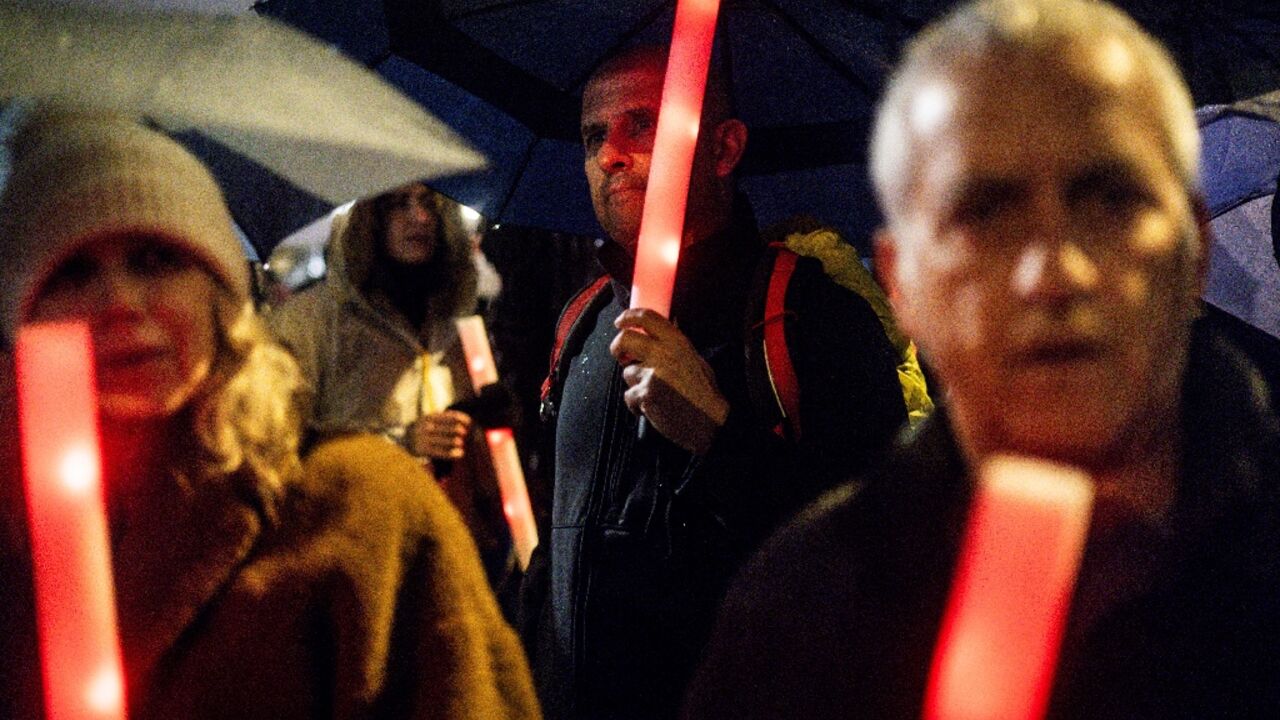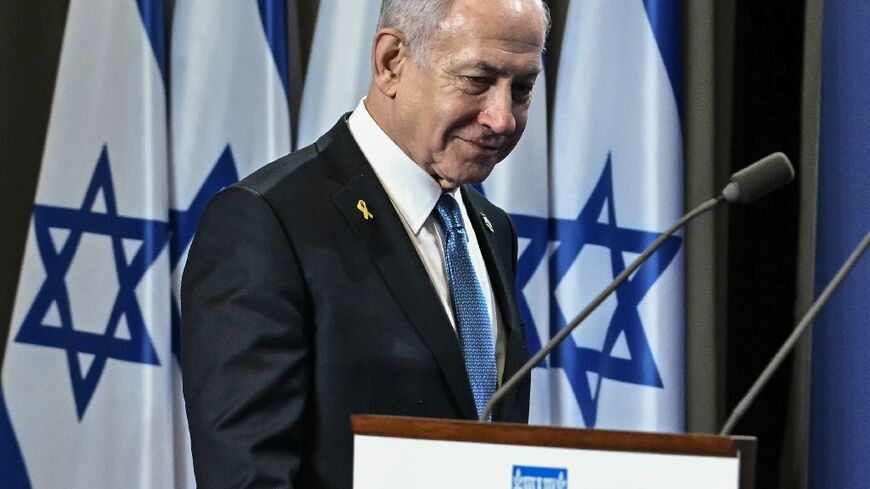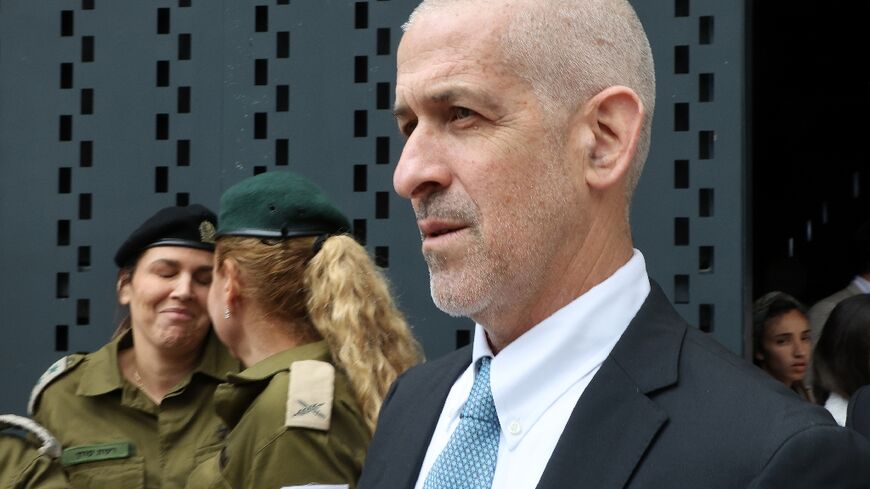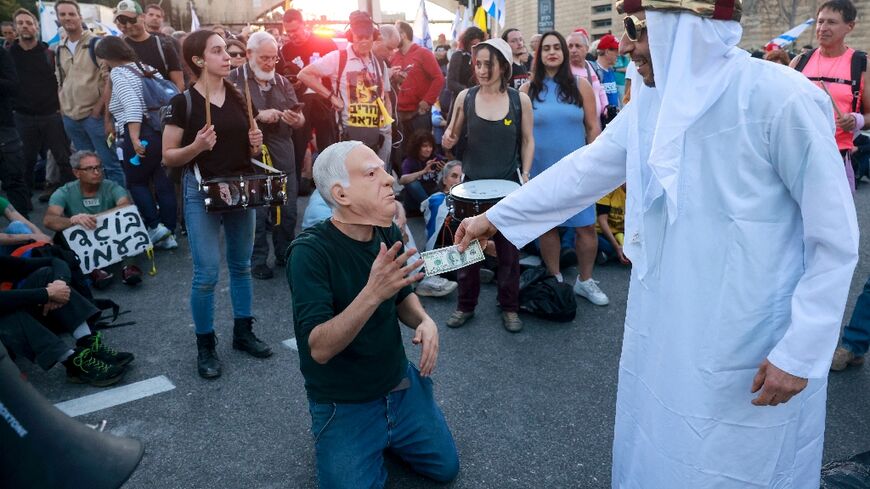Israel's Netanyahu picks new security chief, defying legal challenge

Israeli Prime Minister Benjamin Netanyahu picked former navy commander Eli Sharvit to head the country's domestic security agency, his office said Monday, despite the supreme court freezing the incumbent's dismissal.
Sharvit is not expected to assume office until April 8, the date when the supreme court is scheduled to rule on the dismissal of the current Shin Bet chief, Ronen Bar.
Netanyahu moved to sack Bar on March 21, citing an "ongoing lack of trust" in him.
But after petitions filed by Israel's opposition and a non-governmental organisation, the supreme court suspended the dismissal of Bar, whose relationship with the government became strained after he blamed the executive for the security fiasco of Hamas's October 7, 2023 attack on Israel.
Legal experts and Israeli opposition leaders warned that if the top court overturns Bar's dismissal, the country could face a constitutional crisis.
"After conducting in-depth interviews with seven worthy candidates, Prime Minister Benjamin Netanyahu decided to appoint former Israel navy commander, Vice-Admiral Eli Sharvit as the next director of the ISA (Shin Bet)," his office said in a statement.
Netanyahu's office said Sharvit had served in the military for 36 years, including five as navy commander.
"In that position, he led the force building of the maritime defence of the territorial waters and conducted complex operations against Hamas, Hezbollah and Iran," the statement said.
- 'Playing with fire' -
Legal experts AFP spoke to said that Netanyahu had so far not violated any law in choosing Sharvit.
"Things are proceeding in parallel as the supreme court allowed him to interview candidates for the post while legal proceedings are still on in the court," an expert on the issue told AFP on condition of anonymity, for fear of appearing to criticise the government.
"The question of how legal is the dismissal (of Bar) is still pending in the supreme court and it could still be cancelled by the court."
The expert said Netanyahu, by choosing the next Shin Bet chief, was "establishing facts on the ground".
"It might be an attempt to influence the court."
Opposition leader and former defence minister Benny Gantz praised Sharvit but cautioned that the country could be on the brink of a crisis by pitting the judiciary against the executive.
"What is clear is that the prime minister decided this morning to continue his campaign against the judicial system and lead the state of Israel toward a dangerous constitutional crisis," Gantz said in a statement.
Gantz emphasised that "the appointment of the head of the Shin Bet must take place only after the supreme court's ruling".
Israel's main opposition leader, Yair Lapid, lashed out against the way the government picked Sharvit.
"It's about the hasty, fearful, and irresponsible process by which the selection for the next head of Shin Bet was conducted," Lapid said on X.
US Senator Lindsey Graham, a Republican ally of President Donald Trump, also criticised the appointment as "beyond problematic", citing unspecified past statements by Sharvit about Trump.
- Protests, criticism -
Attorney General Gali Baharav-Miara had said immediately after the March 21 ruling that Netanyahu was "prohibited" from appointing a new Shin Bet chief.
Baharav-Miara also said she suspected Netanyahu of having a conflict of interest.
But he insisted it was up to his government to decide who heads the domestic security agency.
Bar's relationship with the Netanyahu government soured after he blamed the executive for Hamas's October 2023 attack, and following a Shin Bet probe into alleged covert payments from Qatar to a Netanyahu aide.
On Monday, Netanyahu testified in the investigation, locally dubbed "Qatargate", denouncing it as a "political witch hunt" aimed at "preventing the dismissal" of Bar.
He also condemned the arrests of his two aides, Yonatan Urich and Eli Feldstein, calling their detention an act of "hostage" taking.
Baharav-Miara was also previously critical of the government's plans to overhaul the judiciary, which she said threatened to make Israel a "democracy in name but not in spirit".
The proposed changes sparked months of mass protests across Israel, deeply dividing society, but the government suspended them following the start of the Gaza war sparked by Hamas's attack.
They have since been revived, however.
Thousands of Israelis protested last week to condemn Bar's dismissal, and to call for the return of the hostages being held in Gaza.
They also protested against the Israeli parliament's decision to pass a law expanding elected officials' power to appoint judges pushed by Netanyahu's government.



